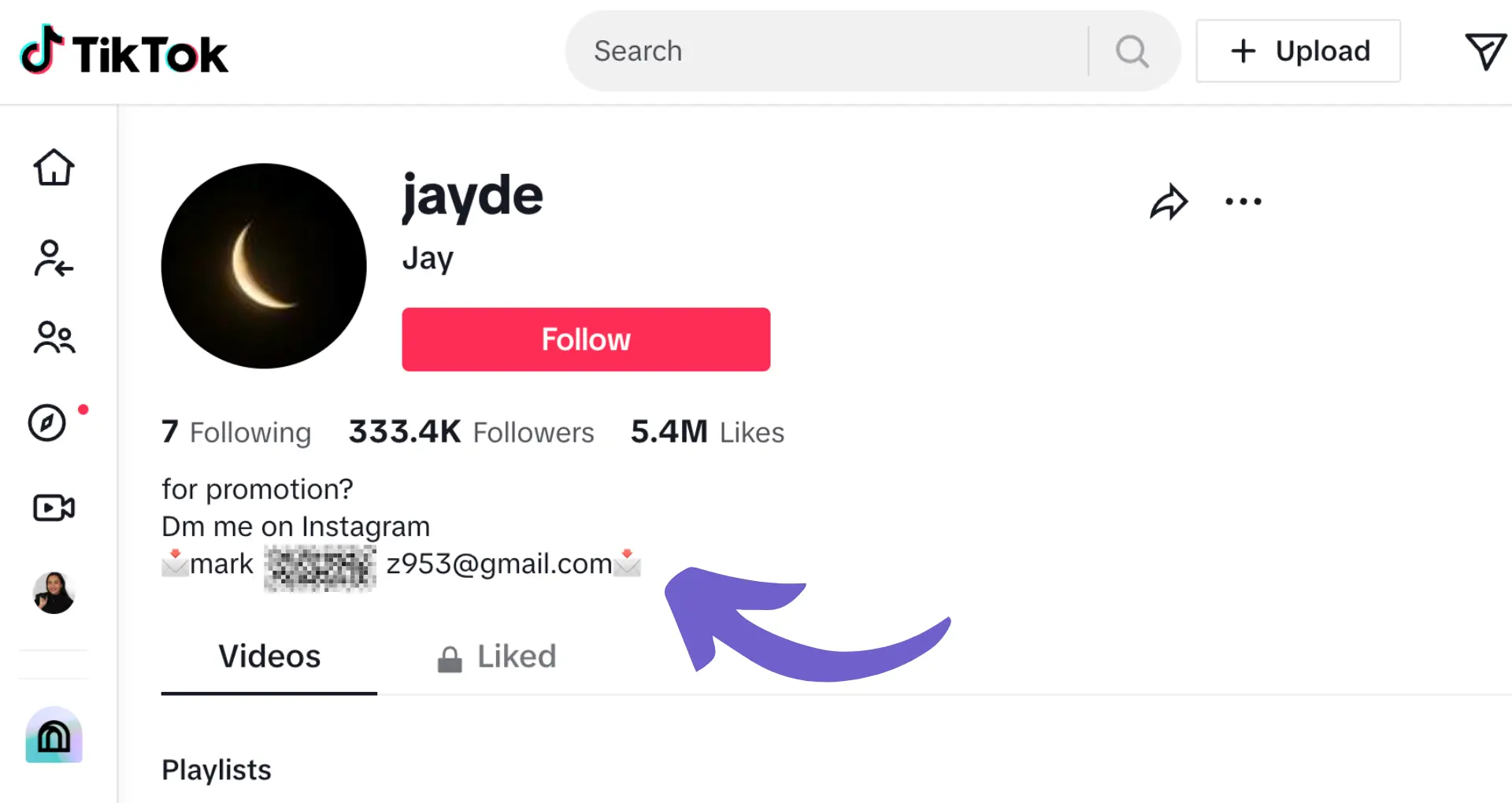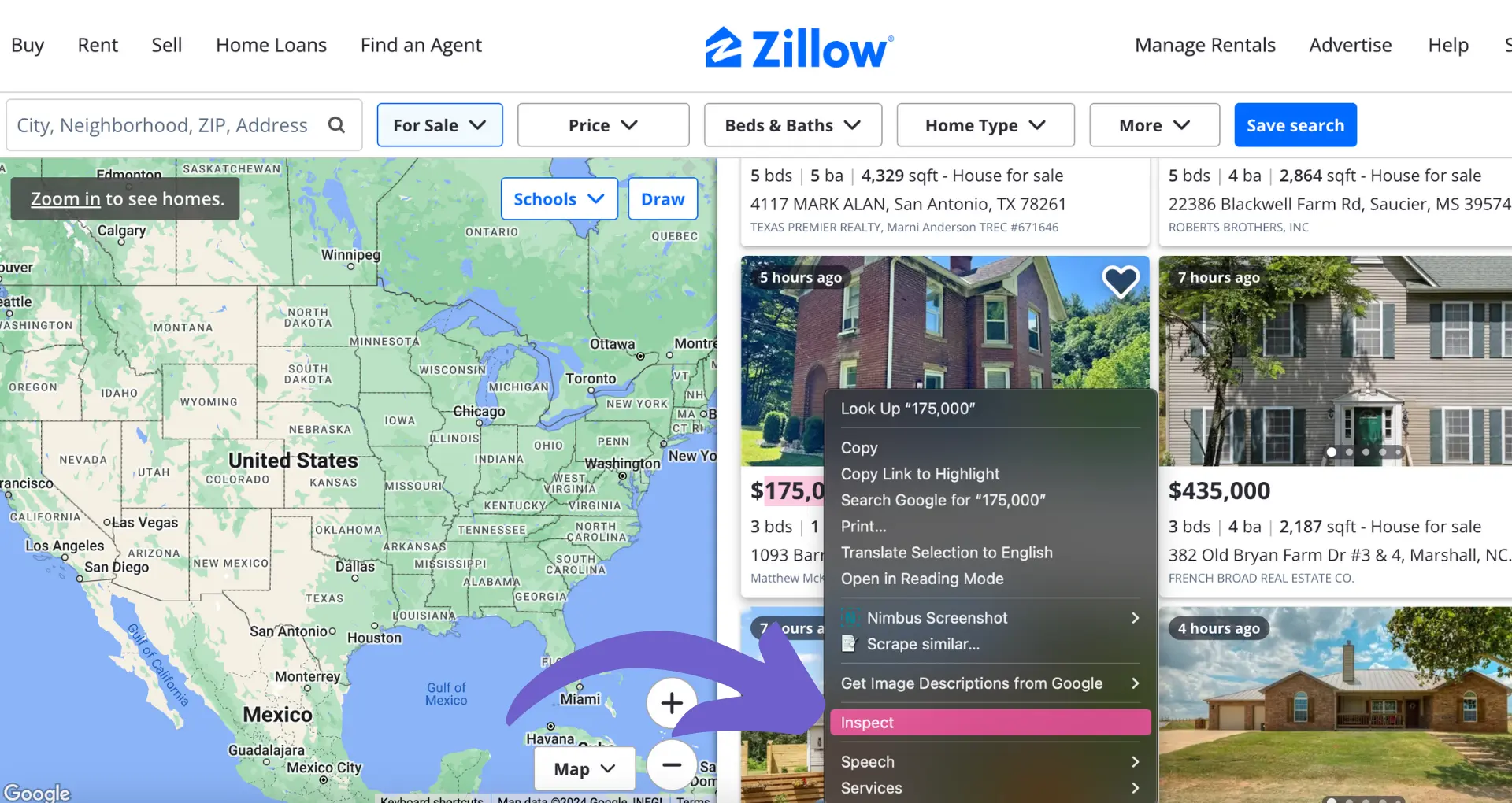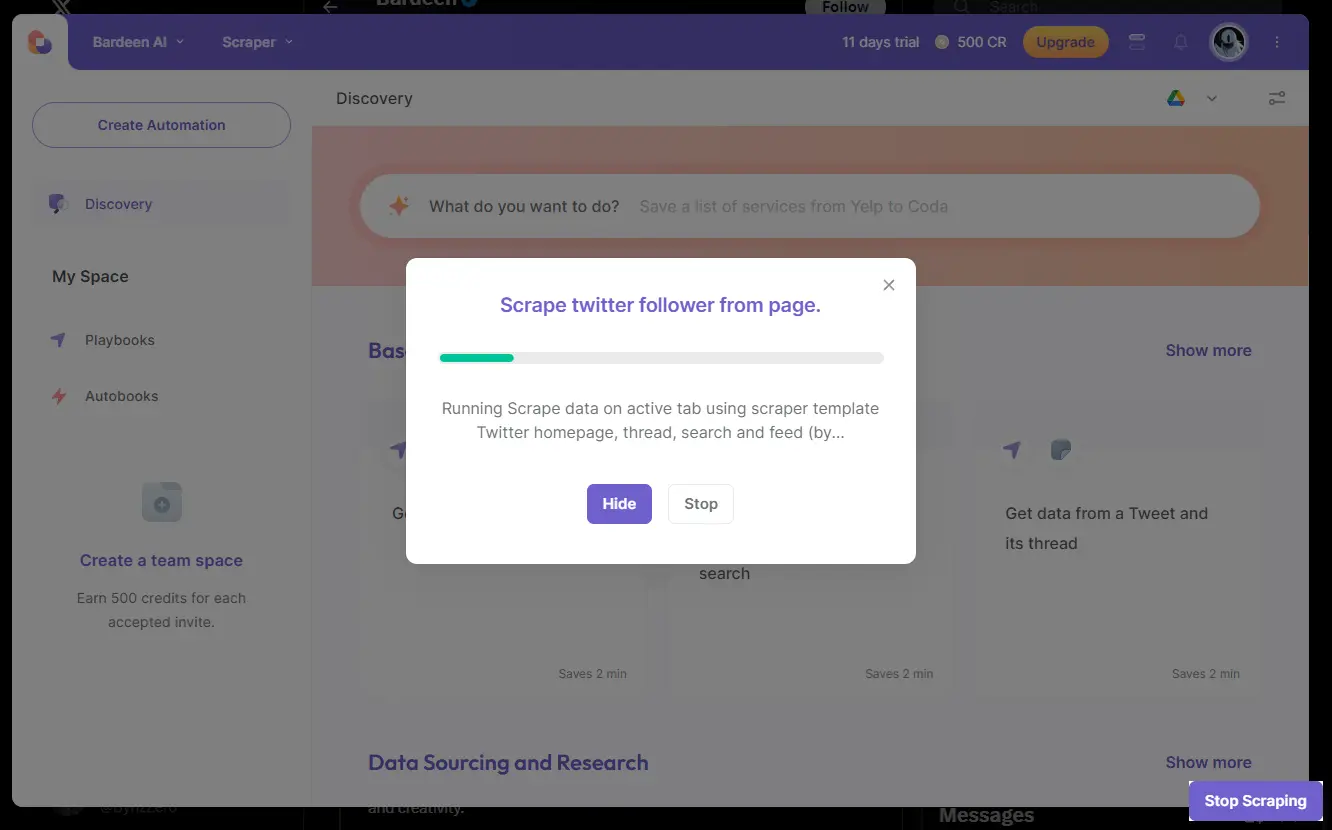





A sales play guides reps through specific selling situations.
By the way, we're Bardeen, we build a free AI Agent for doing repetitive tasks.
If you're refining your sales process, check out Bardeen's AI for sales. It automates prospecting, lead generation, and outreach, letting you focus on closing deals.
Sales plays are game-changers in the world of B2B sales. They provide a structured approach to guide reps through specific selling situations, helping them close more deals faster. In fact, leading sales teams attribute over 60% of their pipeline to well-designed sales plays.
But what exactly is a sales play, and how can you leverage them to supercharge your sales process? In this comprehensive guide, we'll break down the essential components of effective sales plays and share best practices for implementing them in your organization. Get ready to level up your sales game and crush your quota!
A sales play is a planned series of steps that guide a sales rep through a specific selling situation. Sales plays are an essential component of a sales process and overall sales strategy.
Just like a coach draws up a play in sports to score against a defense, a sales play provides a clear plan for sales reps to engage prospects and win the sale. Sales plays outline what the rep should do and say at each stage of the sales process for specific scenarios.
For example, a sales play for a software demo may include:
A typical sales play includes:
The components may vary depending on the type of play, but the goal is to arm reps with everything they need to successfully execute the play and drive the sale forward.
Sales plays are used across the entire sales process for different scenarios and buyer personas. Some common examples:
The plays focus on the most critical selling situations that move buyers through the sales funnel. Reps use the plays to engage, educate, and compel prospects to take the desired action.
In summary, sales plays provide a blueprint for sales reps to navigate key selling scenarios with proven tactics and messaging. They are an indispensable tool for building a consistent, effective sales process.
Implementing sales plays can provide significant benefits to sales organizations. Sales plays equip reps with proven techniques, talk tracks, and content to effectively engage buyers and close deals. As a sales team grows, sales plays help maintain consistency in messaging and execution.
Sales plays arm reps with the most effective tactics for specific selling scenarios. For example, a sales play for handling pricing objections may include:
By using this play consistently, reps can more effectively overcome pricing objections and close more deals. Sales plays take the guesswork out of selling and enable reps to perform at a higher level.
Use Bardeen to automate your sales prospecting and save time on repetitive tasks, so you can focus on closing deals.
As a sales team grows, it becomes challenging to ensure every rep is using the most effective messaging and tactics. Sales plays provide a scalable way to enable reps and maintain consistency.
For instance, a company expanding into new markets can create sales plays for each new buyer persona. This ensures all reps are equipped to effectively sell to these new buyers and positions the product's value consistently.
Sales plays accelerate the onboarding process for new reps. Rather than shadowing calls for weeks to learn the ropes, reps can quickly study the key sales plays and start selling effectively much sooner.
Sales plays also serve as an excellent ongoing training tool. Reps can continually sharpen their skills by practicing the techniques outlined in each play. Managers can use sales plays to identify skill gaps and coach reps to mastery.
Sales plays align the efforts of sales and marketing around the needs of buyers. Marketing can create content and collateral that supports each play. Sales can provide feedback on what content is resonating with buyers in each scenario.
This alignment ensures that marketing is creating content that sales will actually use, and that sales is equipped with content that moves buyers through the sales process. The result is a more seamless buying experience.
The benefits are clear: sales plays help reps sell more effectively, drive consistency as teams scale, speed rep onboarding, and align sales and marketing. Next, let's explore best practices for creating winning sales plays.
Developing winning sales plays requires a strategic approach. Analyzing sales data helps pinpoint the selling scenarios that need plays. Collaborating with marketing and top reps ensures the plays contain the most effective content and tactics. Structuring the plays for easy consumption and continually optimizing them based on performance data is also critical.
Not every selling situation warrants a play. Focus on developing plays for the scenarios that have the biggest impact on revenue and performance. Examples may include:
Analyze sales data to pinpoint where in the sales process reps struggle the most or where win rates are low. Prioritize creating plays to help reps navigate these pivotal moments successfully.
Creating effective sales plays requires tight alignment between sales and marketing. Marketing brings deep buyer insights and content creation expertise. Top performing reps know what works in the field and can share their winning formulas.
Establish a collaborative process where marketing interviews top reps to extract best practices. Then, marketing can package this tribal knowledge into play content such as talk tracks, email templates, and call scripts. This ensures the plays reflect what actually works with buyers.
For plays to be adopted, they must be easy to find, follow and consume in the moment. Structure the content so reps can quickly digest the information and take action. Some tips:
Sales plays are not "set it and forget it" assets. They must be continuously measured and optimized based on performance data and rep feedback. Some metrics to track include:
Use this data to identify which plays are moving the needle and which need refinement. Treat the plays as living documents that evolve based on what's working in the field.
Effective sales plays equip reps to win more deals. Focusing on high-impact scenarios, collaborating on content, structuring for usability, and continually optimizing sets your plays up for success. To further improve your sales process, consider using buying signals to identify the most promising leads.
Incorporating sales plays into your sales process requires a strategic approach. It involves integrating plays into your sales playbook and enablement program, training reps on execution, leveraging the right tools, and establishing a continuous optimization process. When done effectively, implementing sales plays can drive consistent revenue growth.
Your sales playbook is the central repository for all your sales strategies, processes, and best practices. Incorporating plays into your playbook makes them easily accessible to reps and ensures alignment across the team.
Start by categorizing plays based on selling scenarios like prospecting, discovery calls, demos, and objection handling. Document each play's purpose, target persona, key activities, and talk tracks. Use a format that's easy to understand and apply, such as a checklist or flowchart.
Integrate your playbook into your CRM or sales enablement platform to put plays at reps' fingertips. For example, Salesforce allows you to embed playbooks directly into opportunity records for easy access and execution.
Sales plays should be a core component of your overall enablement strategy. Align plays to your onboarding, training, and coaching programs to drive adoption and mastery.
During onboarding, introduce new reps to your play methodology and review key plays. Provide hands-on practice through role-playing exercises. Reinforce plays in ongoing training sessions, highlighting best practices and real examples of successful execution.
In coaching sessions, review play usage and identify areas for improvement. Have top reps share how they leverage plays and their winning formulas. Encourage peer learning and collaboration around refining play content and tactics.
The right sales tools can make play execution easier and more effective. Look for solutions that allow reps to access and utilize plays directly within their workflow.
Sales engagement platforms like Outreach and SalesLoft let you build plays into email and call sequences. Reps can execute plays at scale while personalizing for each prospect. Conversation intelligence tools like Gong and Chorus provide visibility into play usage on calls, helping identify best practices.
Invest in a sales enablement platform that serves as a central hub for play content, training, and analytics. Solutions like Highspot and Seismic make it easy to create, distribute, and measure play effectiveness.
Implementing sales plays is not a one-time event. Continuously measure and optimize play performance to maximize impact.
Track play adoption and usage across the team. Measure the impact on key metrics like response rates, meeting bookings, pipeline creation, and win rates. Identify which plays are moving the needle and which need refinement.
Save significant time by using sales prospecting automation. Automate tasks like lead research and list building to streamline your workflow and focus on high-potential leads.
Gather feedback from reps on what's working and what's not. Analyze top performer activity to extract best practices. Work with marketing to refresh play content and align with evolving buyer needs. Treat plays as living assets that you continually enhance.
Sales play implementation requires tight alignment between enablement, sales, and marketing. By integrating plays into your enablement program, leveraging the right tools, and continuously optimizing, you'll drive play adoption and revenue impact. To learn more about the tools that can assist in this process, check out how to automate sales prospecting.
Thanks for sticking with us through this comprehensive guide! While we can't promise you'll become a sales play master overnight, you're well on your way to transforming your sales process.
Understanding sales plays is crucial for optimizing your sales process and driving consistent results. In this comprehensive guide, you discovered:
Don't let your competition outplay you - master the art of sales plays or risk losing deals and revenue!










SOC 2 Type II, GDPR and CASA Tier 2 and 3 certified — so you can automate with confidence at any scale.
Bardeen is an automation and workflow platform designed to help GTM teams eliminate manual tasks and streamline processes. It connects and integrates with your favorite tools, enabling you to automate repetitive workflows, manage data across systems, and enhance collaboration.
Bardeen acts as a bridge to enhance and automate workflows. It can reduce your reliance on tools focused on data entry and CRM updating, lead generation and outreach, reporting and analytics, and communication and follow-ups.
Bardeen is ideal for GTM teams across various roles including Sales (SDRs, AEs), Customer Success (CSMs), Revenue Operations, Sales Engineering, and Sales Leadership.
Bardeen integrates broadly with CRMs, communication platforms, lead generation tools, project and task management tools, and customer success tools. These integrations connect workflows and ensure data flows smoothly across systems.
Bardeen supports a wide variety of use cases across different teams, such as:
Sales: Automating lead discovery, enrichment and outreach sequences. Tracking account activity and nurturing target accounts.
Customer Success: Preparing for customer meetings, analyzing engagement metrics, and managing renewals.
Revenue Operations: Monitoring lead status, ensuring data accuracy, and generating detailed activity summaries.
Sales Leadership: Creating competitive analysis reports, monitoring pipeline health, and generating daily/weekly team performance summaries.